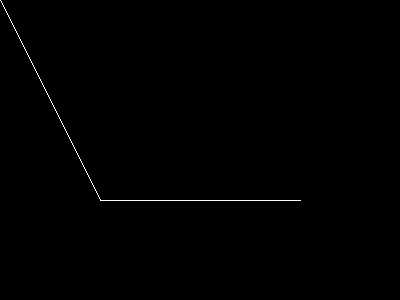In case you want to use an open polygon but are stuck with a PHP version prior to 7.2, a solution may be to 'backplot' your array to its original start. Say you have an array of pixels (below seperated by commas)
<?php
$arr = array();
for ($i = 0; $i < count($pixels); $i++) {
$pixel = explode(',', $pixels[$i]);
if (($pixel[0] > 0) && ($pixel[1] > 0)) {
$arr[] = $pixel[0];
$arr[] = $pixel[1];
}
}
imagepolygon($im, $arr, (count($arr) / 2), $otcolor);
?>
you can replace this by something like
<?php
$arr = array();
for ($i = 0; $i < count($pixels); $i++) {
$pixel = explode(',', $pixels[$i]);
$arr[] = $pixel[0];
$arr[] = $pixel[1];
}
// imageopenpolygon($im, $arr, (count($arr) / 2), $otcolor) is not possible, so...
for ($i = (count($pixels)-1); $i >= 0; $i--) {
$pixel = explode(',', $pixels[$i]);
$arr[] = $pixel[0];
$arr[] = $pixel[1];
}
imagepolygon($im, $arr, (count($arr) / 2), $otcolor);
?>imageopenpolygon
(PHP 7 >= 7.2.0, PHP 8)
imageopenpolygon — Draws an open polygon
Опис
Signature as of PHP 8.0.0 (not supported with named arguments)
Alternative signature (deprecated as of PHP 8.1.0)
imageopenpolygon() draws an open polygon on the given
image. Contrary to imagepolygon(),
no line is drawn between the last and the first point.
Параметри
imageОб'єкт GdImage, що повертається однією з функцій створення зображення, такою як imagecreatetruecolor().
points-
An array containing the polygon's vertices, e.g.:
points[0] = x0 points[1] = y0 points[2] = x1 points[3] = y1 num_points-
Total number of points (vertices), which must be at least 3.
If this parameter is omitted as per the second signature,pointsmust have an even number of elements, andnum_pointsis assumed to becount($points)/2. color-
Ідентифікатор кольору, створений за допомогою imagecolorallocate().
Журнал змін
| Версія | Опис |
|---|---|
| 8.1.0 |
The parameter num_points has been deprecated.
|
| 8.0.0 |
Тепер image має бути примірником
GdImage. Раніше очікувався
gd-resource.
|
Приклади
Приклад #1 imageopenpolygon() example
<?php
// Create a blank image
$image = imagecreatetruecolor(400, 300);
// Allocate a color for the polygon
$col_poly = imagecolorallocate($image, 255, 255, 255);
// Draw the polygon
imageopenpolygon($image, array(
0, 0,
100, 200,
300, 200
),
$col_poly);
// Output the picture to the browser
header('Content-type: image/png');
imagepng($image);
?>Поданий вище приклад виведе щось схоже на:

Прогляньте також
- imagepolygon() - Draws a polygon
+add a note
User Contributed Notes 1 note
marco at oostende dot nl ¶
7 years ago